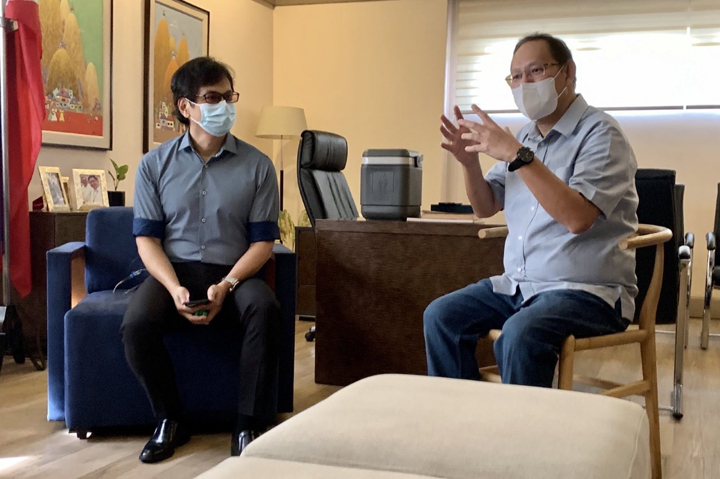
LOCAL politicians did not waste any time in converting the pandemic into an opportunity to showcase their talents and improve their re-election prospects, according to a study by the University of the Philippines School of Economics (UPSE).
In a discussion paper titled “Don’t let a ‘good’ crisis go to waste: One-upmanship in local responses to the Covid-19 pandemic,” Asian Development Bank’s Julian Thomas B. Alvarez as well as UPSE’s Jahm Mae E. Guinto and Joseph J. Capuno found that one-upmanship was common in local responses to the pandemic.
They found that 67.9 percent of the 28 neighborhood clusters in their study showed evidence of one-upmanship so mayors can show off their talents as well as improve their popularity and re-election prospects. These occurred in areas with low vote margins and many political rivals.
“By outdoing their peers, mayors can improve their popularity and, thereby, secure their re-election or the bid of their anointed successors (possibly, relatives). Conversely, [there] were the prospects for a fresh term nil, the incumbent has less incentive to outdo other mayors,” the authors said.
The authors also found that out of the 19, some 17 clusters where there was high one-upmanship was observed had mayors who were eligible for another term. Only two clusters had mayors who were already facing term limits.
The remaining nine clusters are areas where the findings did not show high one-upmanship. Of these, five clusters have mayors who engaged less frequently in one-upmanship; three who appear to have one-upmanship 40 to 50 percent of the time; and two clusters where the Mayors performance were also mixed.
“The incumbent will be impelled to outperform her peers if by doing so improves her popularity and thereby also her chances to another term. Through social media, feedback from supporters, or personal interactions with voters, an incumbent may know if her programs are gaining attention,” the authors said.
“She can further calibrate her programs by mimicking others or being the first to innovate, and increase public awareness of them. The leaders in neighboring jurisdictions may be induced to behave likewise by their own constituents,” they added.
In order to conduct their study, the authors selected 25 cities nationwide. The cities were located in Metro Manila, and in some parts of Central Luzon, Western Visayas, Central Visayas, and Northern Mindanao.
The authors paired them to create 28 clusters with each cluster being composed of “neighboring” localities that may share a land border or the same political or economic prominence in a province or region.
The anti-Covid-19 efforts in these clusters were observed between March 2020 and March 2021. These efforts covered national government directives and the introduction of innovations.

